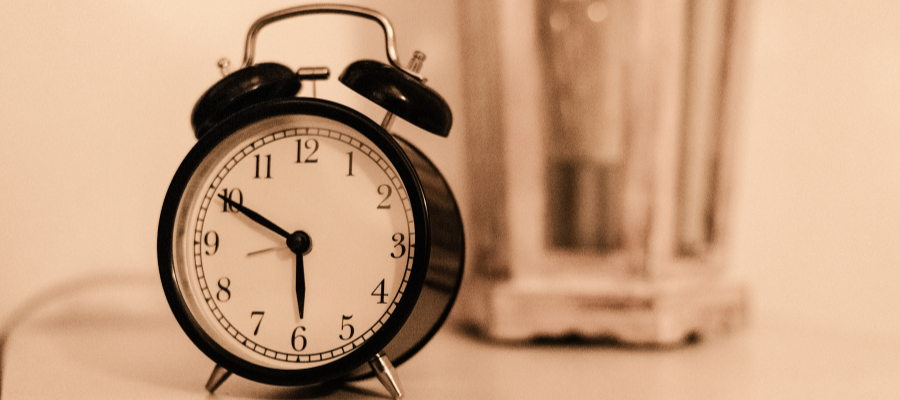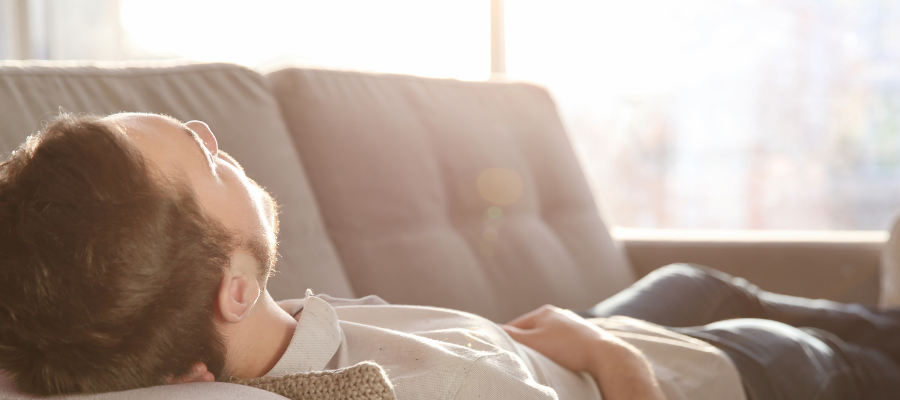How to adjust to your sleep chronotype
Your sleep chronotype refers to the time of day that you go to bed and wake up. Everyone has a circadian rhythm, which is basically how our biological clock works. This clock is set in part by when you are naturally inclined to sleep. Knowing your sleep chronotype can help you optimize your day and improve your sleep health.
How do sleep chronotypes work?
Chronotypes are genetically based with a link to your PER3 gene (the PER3 is a gene used by cells for new cell division), your circadian rhythm and your internal body clock. People who tend to wake early (early birds) have longer PER3 genes which also correlates to needing more sleep than people who go to bed later (night owls) who have shorter PER3 genes and need less sleep.
READ ALSO: 12 tips to fall asleep right now
What sleep chronotypes are there?
Morning and evening types, or early birds and night owls are the most known chronotypes but there are actually four main types which Dr. Michael Breus has labelled Lions, Bears, Wolfs and Dolphins.
Chronotypes in the population
According to Dr. Breus, about 50% of the population are bears, 15-20% each fall into either the lion chronotype or wolf chronotype and dolphins make up about 10%.
READ ALSO: How the sleep stages affect your health
Can I change my sleep chronotype?
Since they have a genetic basis, it is not possible to intentionally change your chronotype. However, our bodies naturally undergo changes as we age. So, you may start out as one chronotype but experience a different type as a teenager and later as an older adult.
Biologically, adolescents are wolves and lean towards staying up late and waking up late. There is a strong argument that school times should start later, especially for middle school students, due to this shift in their circadian rhythms.
As you age, you can become more a lion chronotype, waking earlier with good energy but also going to bed early. None of these changes can be forced.
Can chronotypes cause sleep problems?
A person’s chronotype isn’t the cause of sleep problems but your chronotype and work or social obligations may be at odds. It’s not just work hours that may run counter to your chronotype. Family life and social events can make demands on your schedule that disrupt your natural sleep pattern and affect your sleep quality.
If you are a dolphin and tend to be a light sleeper, the likelihood of disturbed sleep with night awakenings increases which can increase daytime sleepiness and may develop into a form of insomnia.
READ ALSO: Why do people snore why sleeping?
How do I adjust to my sleep chronotype
If you are an early bird (or bear chronotype), you’re in luck. Much of the world adheres to a schedule suited for your sleep schedule. If you belong to one of the other sleep chronotypes, however, things are not that simple, but there are ways to effectively adjust to your chronotype:
Blue light therapy

Blue light therapy is an option to consider. By exposing or reducing exposure to blue light at specific times of the day, you can affect your body’s internal clock and circadian rhythms. This can effectively shift your normal wake and sleep times and thereby improve your sleep quality. One option is blue light glasses.
Flex your work schedule

As much as possible, adapt your life to your natural sleep patterns. If you are a night owl, working a job that requires you to clock in at 7 am may not be the best choice. If you can, choose a job or negotiate a schedule that allows you to work when you have the most energy and can be the most productive.
Keep a steady routine

Whether you are night owl or a morning person, it is best to follow a sensible and regular sleep routine. Examine your bedroom and remove distractions – it is best to reserve your bedroom for two things only, sleep and sex. Establish some relaxing routines before bed; remember to turn off screens at least an hour before bed and consider taking a warm bath or reading a novel. It’s all about creating the best conditions possible for your human circadian clock.
Take a power nap

Incorporate a power nap into your afternoon. If you are a lion and your energy wanes in the afternoon, taking a 20-minute power nap in the afternoon can help sustain your energy to get you through the evening until bedtime. For wolves who may have to wake earlier and go to bed earlier than they would like, a power nap could help boost you through your day until you hit your natural high energy period in the later afternoon/evening.
Summary
Knowing your chronotype can help make better choices to feel and execute at our best. If you are a Lion, it does not mean you need to skip getting drinks with your team after closing a big project or that you can’t rock that important meeting tomorrow morning as a wolf. Find ways to acclimate your schedule and environment to make the most of your highly effective hours, utilize the benefits of a quick power nap and get good, restorative sleep at night.


